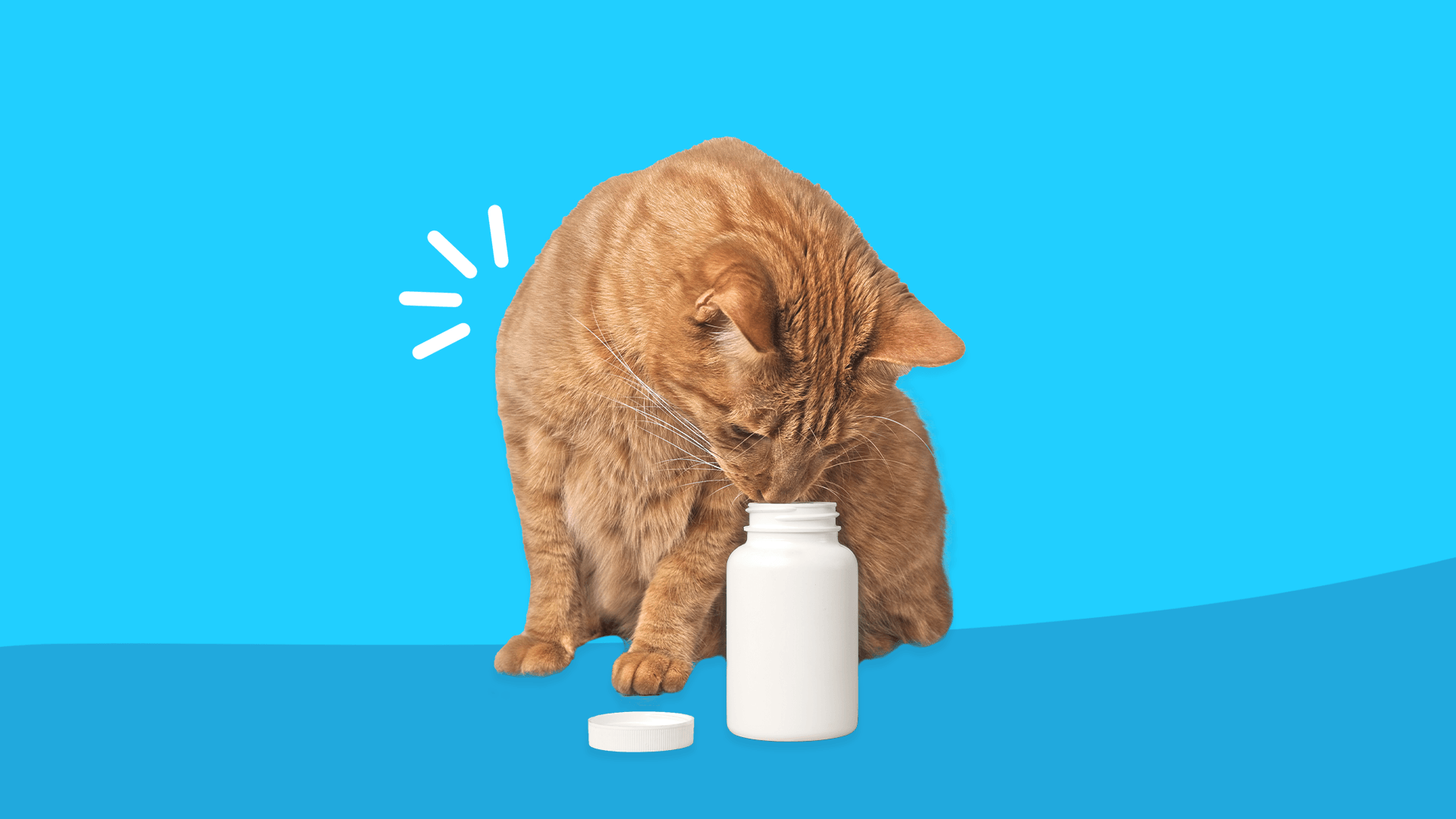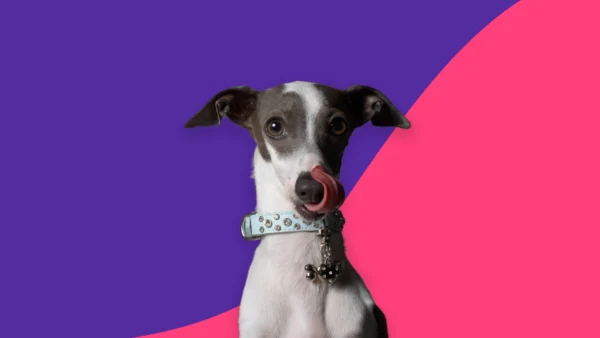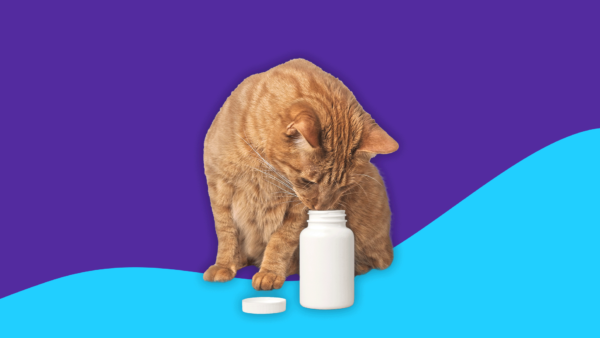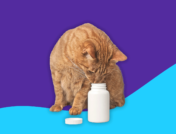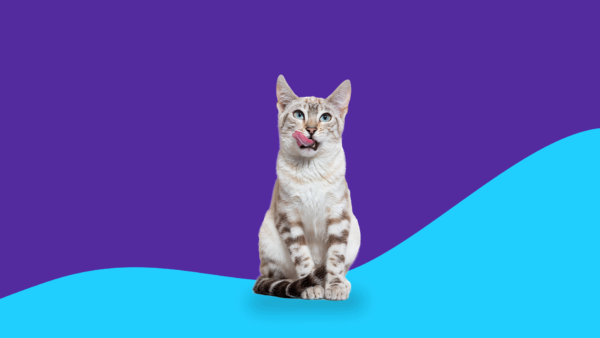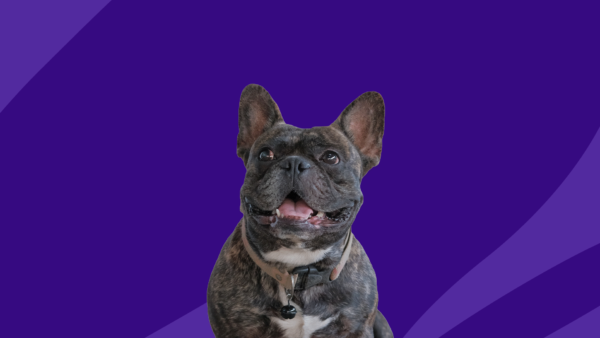Pets may be part of our families—but when it comes to medication, it’s important to remember that cats and dogs aren’t miniature humans. Over-the-counter drugs that are safe for the smallest children can be fatal if ingested by pets.
Why it’s important to keep pills away from pets
Most pets know to stay away from things like fire, deep water, and predators. It’s in their nature. But many pets don’t know that pills can be potentially dangerous.
Pets are curious. They may use a plastic medication bottle as a toy, then accidentally ingest the liquid or pills within. To pets, pills look like they might be food. The sugary coating on some pills can attract dogs or cats. And there are some pills that, for unknown reasons, may be particularly attractive to some dogs or cats.
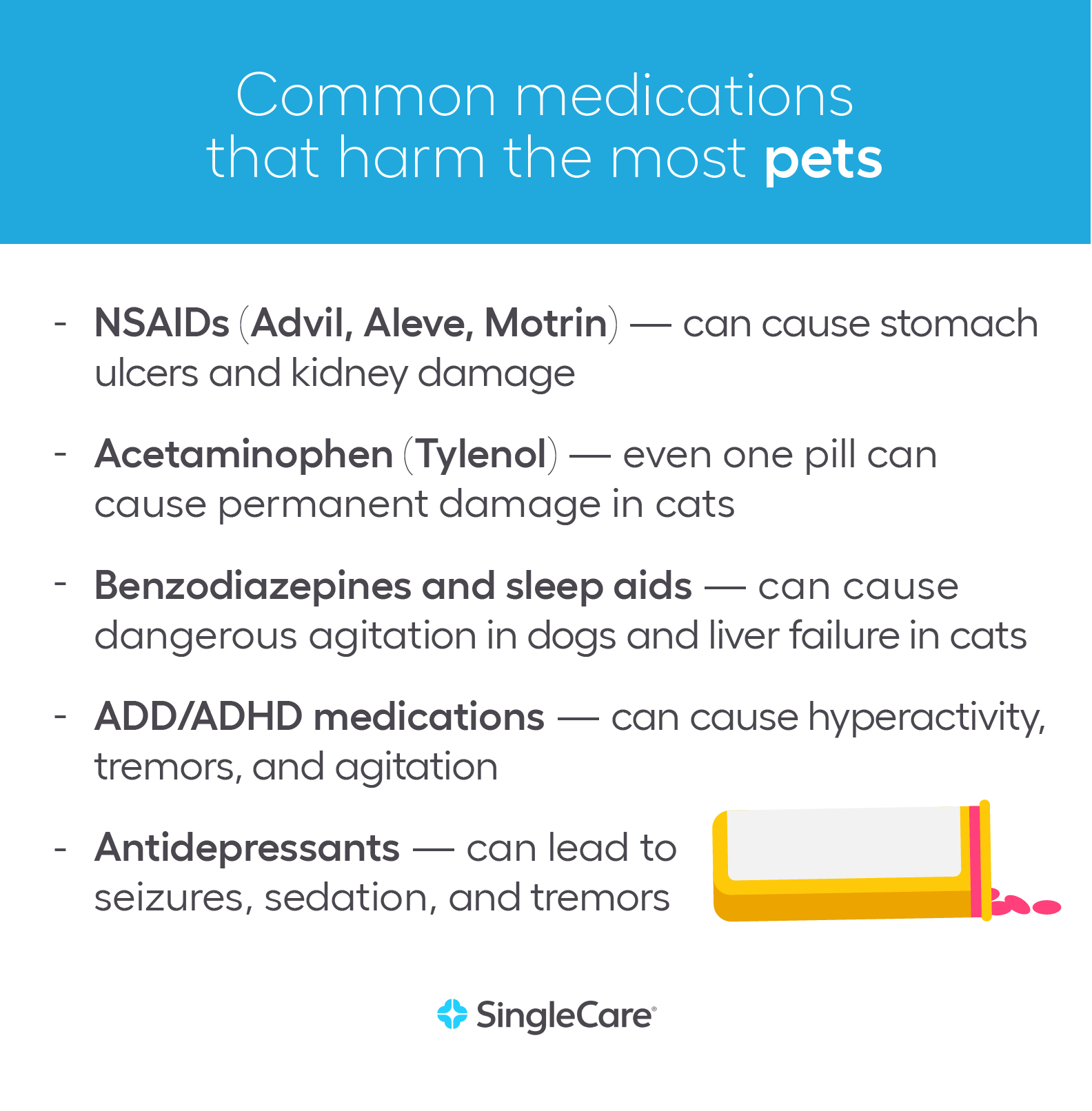
What happens if a pet eats pills?
If a pet ingests medication intended for humans or too much of its own pet medication, a dangerous situation can develop.
Drugs can be fatal or cause long-term damage in pets.
Some of the symptoms that pets experience after ingesting medication can include stomach upset, elevated heart rate, lethargy, and loss of coordination.
Can pills kill a pet?
Yes, there are pills that can kill pets even in very small doses. For example, a regular dose of ADD/ADHD medication like Adderall can cause life-threatening tremors, heart problems, and other adverse effects in pets.
How long does it take for a pill to digest in a pet?
A pill may take days for a pet to digest. Some signs and symptoms of pill ingestion can be apparent right away, while others may take hours or days to appear.
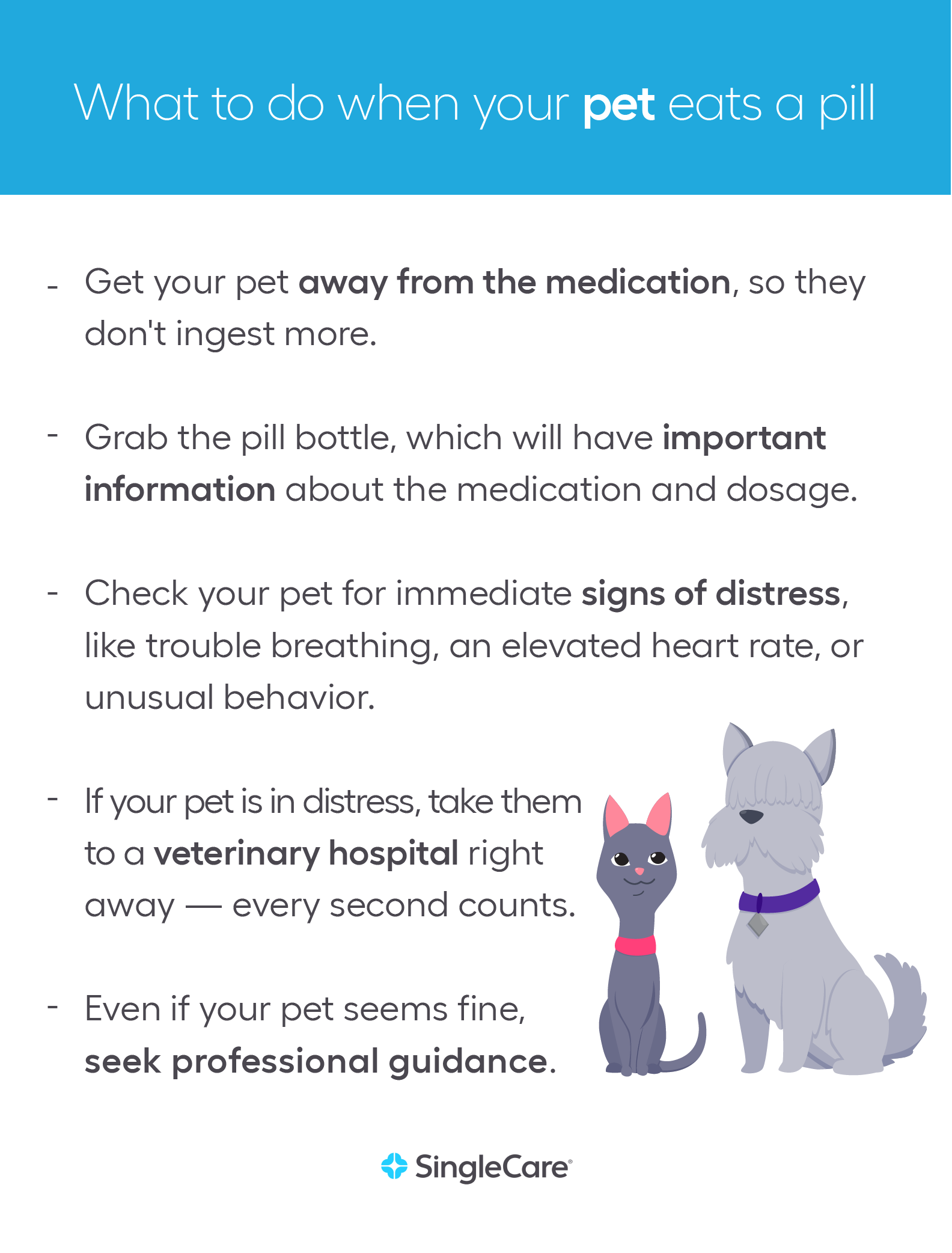
What to do when your pet eats your pills
If your pet ingests any amount of medication, do not wait to see if symptoms develop. Get professional help right away.
The first thing to do is to get your pet away from the medication so they don’t ingest any more of it. Get a hold of the pill bottle. It will have important information about the medication and dosage.
Then, check your pet for any immediate signs of distress like trouble breathing, an elevated heart rate, or unusual behavior. If your pet is in distress, take them to a veterinary hospital right away because every second counts.
Do not attempt to treat the animal yourself with home remedies or by inducing vomiting.
Even if your pet doesn’t show signs of distress, seek advice from a professional.
- Call your veterinarian, or a nearby veterinary hospital.
- Call the Pet Poison Helpline, a 24/7 service, at 855-764-7661. A consultation fee may apply.
- Call the ASPCA Animal Poison Control Center, a 24/7 service, at 888-426-4435. A consultation fee may apply.
What medications are toxic to pets?
Any medication taken in large enough quantities is dangerous to any animal—including humans. However, some commonly prescribed medications are of specific concern for certain animals.
What common medications are toxic to dogs?
- NSAIDs (Advil, Aleve, Motrin)
- Antidepressants (Effexor, Cymbalta, Prozac)
- Acetaminophen (Tylenol)
- ADD/ADHD medications (Adderall, Ritalin, Concerta)
- Benzodiazepines and sleep aids (Xanax, Valium, Ambien)
- Calcium supplements (Caltrate, Viactiv)
- Decongestants (Sudafed)
What common medications are toxic to cats?
- NSAIDs (Advil, Aleve, Motrin)
- Antidepressants (Effexor, Cymbalta, Prozac)
- Acetaminophen (Tylenol)
- ADD/ADHD medications (Adderall, Ritalin, Concerta)
- Benzodiazepines and sleep aids (Xanax, Valium, Ambien)
- Decongestants (Sudafed)
What common medications are toxic to birds?
- Painkillers (Tylenol, Advil, Aleve)
- Cold medicines (Robitussin)
- Anti-cancer medications (Avastin, Zydelig)
- Antidepressants (Effexor, Cymbalta, Prozac)
- Diet pills (Adipex, Xenical)
How to keep your pets safe from medication
These important steps can help ensure that you never have to worry about medications poisoning your pet or any other member of your family.
Buy a sturdy lock box for medication and hide it
- Keep medications in a locked metal box made of material that’s too strong for your pet to chew through it.
- Keep the locked box on the highest shelf you can.
Keeping the box on a high shelf should prevent curious pets from seeing it. Using a locked, sturdy box ensures that if they somehow find your pill storage area, they won’t be able to get at the pills.
Keep pet medications separate from human ones
Many accidental poisonings happen when a medication is given to a person (or pet) that it wasn’t intended for. You can prevent this by having separate lockboxes for human and pet medications.
Dispose of medications promptly and properly
If a medication has expired, or you no longer need it, there’s no reason to keep that risk in your home. But you must take care to dispose of medications safely. Many times, the most dangerous place for medication is the trash can.
Some medications are so dangerous, they should be flushed down the toilet. The FDA maintains a “flush list” of these medications.
Other medications should be thrown away. Take these steps to properly dispose of medications in your household trash.
- Remove the pills from the bottle.
- Mix the pills with an unappetizing substance like dirt or coffee grounds.
- Place the mixture in a resealable plastic bag and place the bag in your trash can.
- Remove and throw away personal identifying information from the pill bottle.
Take additional steps if you have both pets and children
Children who get access to medication may think they’ve encountered a new type of candy. This is even more of a risk with pet medication, which is often made to smell appetizing so that pets are more likely to take it.
A few minutes of care can prevent a life-altering tragedy
A pet eating a pill seems like an unlikely event, but pet poison hotlines receive thousands of calls per year. Dealing with a poisoned pet is a terrifying experience. Often, pet owners are unsure how many pills the pet ingested, or even whether any were ingested at all. The uncertainty can lead to hours or days of worry.
You can prevent an experience like this by understanding the danger that pills pose and by taking a few simple safety steps.



